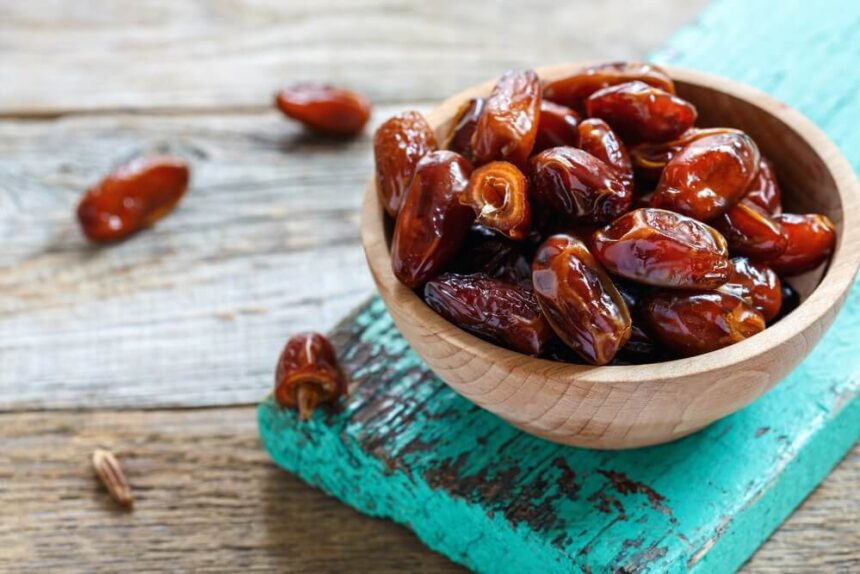Cats, our feline friends, often spark our curiosity when it comes to their dietary choices. We, as responsible pet owners, want to ensure that our furry pals are munching on safe and nutritious foods. But what about dates, that sweet and chewy fruit often snacked on by humans? Can our cats partake in this delight as well? Let’s dive into the question of “Can Cats Eat Dates?” and explore the potential implications.
Understanding Dates: The Sweet Temptation
Dates are a delicious and chewy treat that many people enjoy. Whether fresh or dried, their sweet, caramelly flavor is a hit. For us humans, dates can be a healthy snack, but when it comes to our feline companions, it’s a different story.
The No-Go Zone: Dates for Cats
While dates are generally safe for humans, the same can’t be said for cats. Here’s why:
- Calories and Sugar: Dates pack a sugary punch along with a calorie load. Feeding your cat dates regularly can contribute to weight gain, and we all know that an overweight cat isn’t a happy or healthy one.
- Digestive Dilemma: Dates come with pits, and these can be a serious concern for your cat. Swallowing date pits can lead to blockages in your cat’s digestive system. That’s a risk we’d rather not take.
Healthier Alternatives for Your Kitty
If you’re thinking of offering your cat a treat, there are plenty of safer and healthier options out there. Keep in mind that the health and happiness of your furry friend are top priorities.
But let’s not just stop here. We know you’re curious about more than just dates when it comes to your pet’s diet. So, here’s a broader view of the world of cat nutrition.
Can Pets Eat Dates? A Nutritional Perspective
We’ve established that dates are a no-go for cats. But what about other pets? Can dogs enjoy these sweet delights?
The answer is a bit more positive for our canine companions. Dates can be a nutritious treat for dogs when fed in moderation. They’re rich in fiber and contain essential vitamins and minerals like potassium and magnesium. Moreover, dates have a low glycemic index, which means they won’t cause dramatic spikes in your pet’s blood sugar levels.
However, for both cats and dogs, it’s crucial to remove the pits before feeding them dates. The pits pose the same risk of blockages for dogs as they do for cats.
A Cat’s Ideal Diet: More Than Just Dates
Cats are obligate carnivores, which means their primary source of nutrition should be animal protein. However, some cats may enjoy the occasional fruit treat, and many commercial cat foods include small amounts of fruits and vegetables as added nutrients. Still, it’s crucial to understand which fruits are safe and which should be avoided.
Safe Fruits for Cats:
- Apples: Cats can nibble on apples in moderation, but ensure you’ve removed the seeds and stems, which can be harmful if ingested.
- Bananas: These are safe for cats in small amounts and provide a source of potassium and fiber, aiding digestion.
- Blueberries: Cat-friendly blueberries offer antioxidants and vitamins that contribute positively to their health. Always remember to remove the stems before serving.
- Cantaloupe: Cats can indulge in cantaloupe in moderation. It’s a rich source of vitamins A and C, as well as potassium. But be vigilant about removing the seeds and rind, as these can pose risks if consumed.
Unsafe Fruits for Cats:
- Grapes and Raisins: These innocent-looking fruits are a no-go zone for cats. They contain toxins that can inflict kidney damage.
- Melons: Much like grapes, melons contain toxins and compounds that are unfavorable for feline consumption. Their high water content provides little nutritional value.
- Nuts: While nuts are a delightful human treat, they are perilous for cats. They can lead to intestinal obstructions and blockages in your cat’s digestive tract.
- Pits and Seeds: The seeds and pits of fruits can prove harmful to your cat if ingested. Citrus seeds and pits, in particular, can inflame and cause discomfort in your cat’s esophagus. Always remove them before serving.
- Strawberries: These delicious berries might be a human delight, but they offer little nutritional value for cats and can upset their stomachs.
Forbidden Foods for Cats
Besides fruits, there are other foods that should never grace your cat’s palate:
- Chocolate: The theobromine in chocolate is toxic to cats. It can lead to various health issues, including vomiting, diarrhea, seizures, and even death. In case of chocolate consumption, seek immediate veterinary help.
- Coffee and Alcohol: These are no-gos for your cat. Both can have severe consequences on their health.
- Raw Meat and Fish: While these may seem like a natural choice, they can carry harmful bacteria that can affect your cat’s well-being. Always ensure that meat and fish are cooked before being offered to your furry friend.
- Dairy: Contrary to popular belief, many cats have difficulty digesting cow’s milk and dairy products. They can lead to gastrointestinal discomfort.
11 Human Foods Your Cat Can Eat
Conclusion: Cats and Dates – Not a Perfect Pair
So, there you have it. Dates might be a delightful snack for us, but they’re not ideal for our feline companions. If you’re curious about introducing new foods to your cat’s diet, it’s best to consult your veterinarian. Their expertise can guide you in making choices that keep your cat healthy and happy.
As a responsible pet owner, your cat’s well-being is your utmost priority. While it’s tempting to share your favorite treats with them, it’s crucial to remember that their nutritional needs are unique. So, as you navigate the world of pet nutrition, you can ensure your cat enjoys a long and healthy life.



